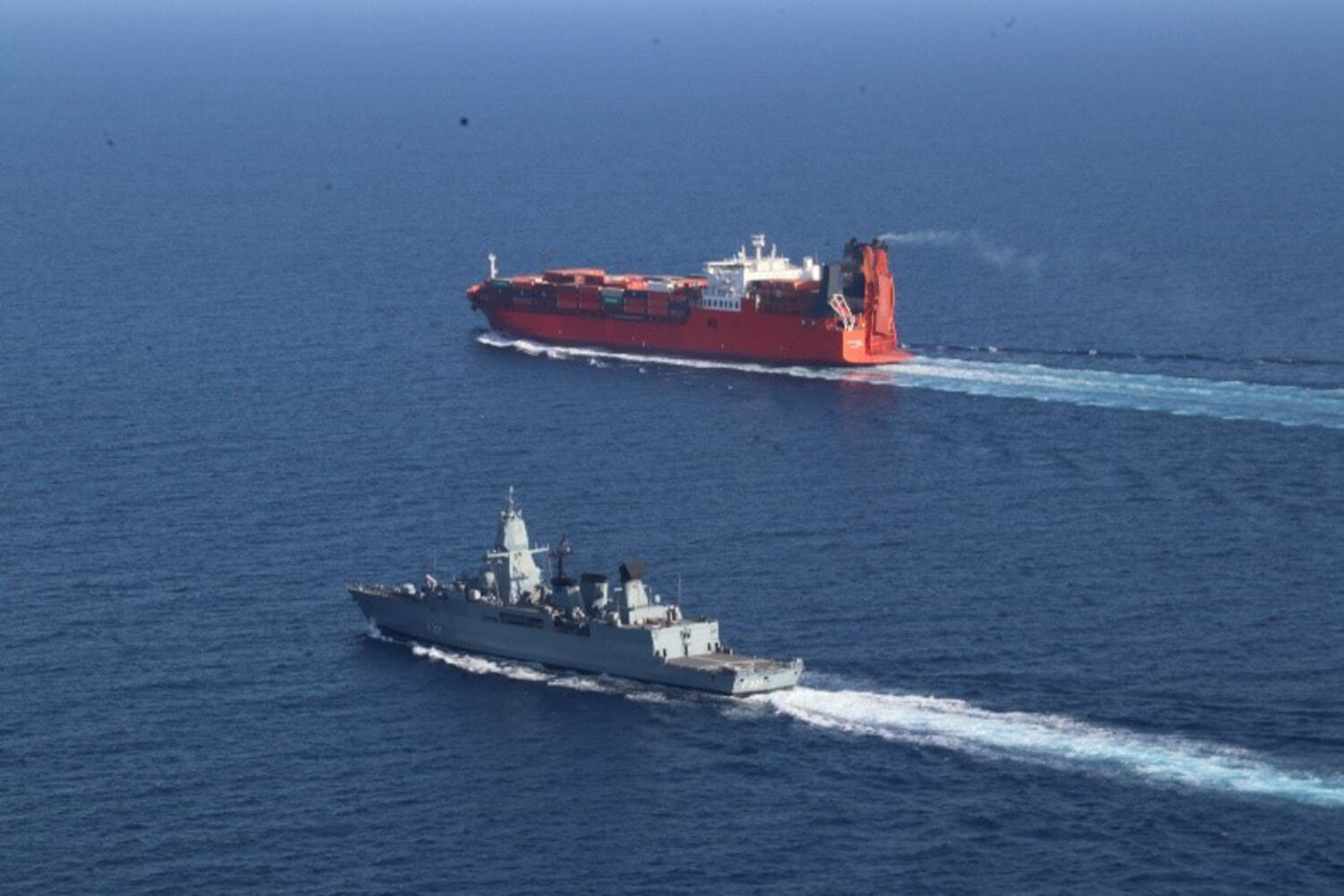The German Armed Forces are to continue their deployment in the EU-led Operation Aspides to repel attacks by Houthi militias on shipping.
Next week, the Bundestag is to approve a corresponding motion by the German government. Up to 700 soldiers are to take part in the mission in the Red Sea.
The deployment is justified by the ongoing attacks by the Houthi militia from areas under their control in Yemen since mid-November 2023, particularly in the Red Sea and the Bab al-Mandab Strait, which are directed against international trade, maritime security and stability in an already volatile region.
Two German Navy frigates were deployed under the first mandate. During its deployment in the Red Sea, the frigate “Hessen” provided escort protection for a total of 27 merchant ships and repelled four attacks by the Houthi movement. It was followed by the “Hamburg”. In response to a “changed security situation”, Navy Inspector Jan-Christian Kaack spoke out in favor of ordering two more frigates.
“Aspides” to protect international shipping
The trade route affected by the Houthi attacks accounts for 15% of global maritime trade. The consequences of the attacks include diversionary routes and increased freight rates, which are ultimately passed on to the end consumer and thus lead to indirect economic effects, including an increase in inflation.
According to the information provided, the area of operation of “Aspides” includes the Bab al-Mandab Strait and the Strait of Hormuz as well as the international waters in the Red Sea, the Gulf of Aden, the Arabian Sea, the Gulf of Oman and the Persian Gulf as well as the airspace above. Deployment in territorial waters can only take place with the approval of the respective littoral state, the statement continues.
The tasks of the German contingent include the protection of ships against attacks at sea and the escorting of ships in the entire area of operations, as well as ensuring the creation and provision of a situation picture, including airborne reconnaissance, and coordination, cooperation, information exchange and logistical support with international allies and partners.
The German government cites a number of Security Council resolutions, most recently Resolution 2722 (2024), and the United Nations Convention on the Law of the Sea, as well as the Convention for the Suppression of Unlawful Acts against the Safety of Maritime Navigation and the right of self-defence to defend against a present unlawful attack on its own or foreign ships and crews.
The “Aspides” mandate would be limited until the end of October 2026. The German government estimates the additional operational expenditure for this period at around €17.3m in total.













